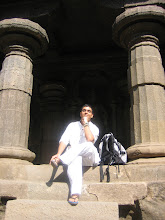The great American Country singer Johnny Cash (1) was known as “the Man in Black” because many of his songs had a distinct melancholic feel. One of his most famous songs, sung as part of the “super band” The Highwaymen (2), is called…'The Highwayman'. The video and lyrics are below:
“The Highwayman” by The HighwaymenThe last line of the song points to what the Buddha described as THE fundamental problem of human existence. What is this problem? It’s the problem of birth and death (3). Let’s sketch out a human life: we’re born, we grow up, we age, we start to get ill, and eventually we die. Sure, there may be TONS of things that happen in between these events but let’s face it, there’s no escaping these facts. If this sounds morbid or creepy, then imagine having to go through the process again, and again, and again, like “The Highwayman” says. Because he called it THE problem we have in life, the Buddha had much to say about this process of death and rebirth, known as saṃsāra.
I was a highwayman. Along the coach roads I did ride
With sword and pistol by my side
Many a young maid lost her baubles to my trade
Many a soldier shed his lifeblood on my blade
The bastards hung me in the spring of twenty-five
But I am still alive.
I was a sailor. I was born upon the tide
And with the sea I did abide.
I sailed a schooner round the Horn to Mexico
I went aloft and furled the mainsail in a blow
And when the yards broke off they said that I got killed
But I am living still.
I was a dam builder across the river deep and wide
Where steel and water did collide
A place called Boulder on the wild Colorado
I slipped and fell into the wet concrete below
They buried me in that great tomb that knows no sound
But I am still around..I'll always be around..and around and around and
around and around
I fly a starship across the Universe divide
And when I reach the other side
I'll find a place to rest my spirit if I can
Perhaps I may become a highwayman again
Or I may simply be a single drop of rain
But I will remain
And I'll be back again, and again and again and again and again.
Saṃsāra (pronounced ‘sum-saaruh’) is a Pali/Sanskrit word which means “going or wandering through, undergoing transmigration, course, passing through a succession of states, circuit of mundane existence, the world, secular life, worldly illusion, to walk or roam through, and to diffuse through” (4).
From where did saṃsāra arise, how did we get here, and when will it end? One of the key teachings of the Buddha was that existence has no First Cause (5), that is saṃsāra has no beginning and it has no end. We have died and been reborn an infinite number of times in the past and will continue to be reborn an infinite number of times in the future. Many people may think that this isn’t a bad thing at all, why would you want to “not exist” by leaving saṃsāra?
This is a common question that arises but another characterization of saṃsāra is that it’s a hopeless struggle because which we will always have to experience suffering in every single life. Saṃsāra also implies that we’re lost, wandering aimlessly from life to life. If you’ve ever been lost as a child in a mall or lost in an unfamiliar city/place, you know the feeling the fear and anxiety. When we’re lost, we become very vulnerable.
In English we have a phrase which describes saṃsāra quite well: a rat race. In the words of actress Lily Tomlin, “the problem with the rat race is that even if you win, you’re still a rat”.
So how does the Buddha describe saṃsāra? One short text, the Assu Sutta (Tears) gives a poignant simile:
"Which is greater, the tears you have shed while transmigrating & wandering this long, long time — crying & weeping from being joined with what is displeasing, being separated from what is pleasing — or the water in the four great oceans?... This is the greater: the tears you have shed...In Buddhist art, a popular motif involves showing saṃsāra as a wheel and in later art, this wheel is usually depicted as being held tightly in the grip of Yama, the ancient Indian deity associated with death. (7)
"Long have you (repeatedly) experienced the death of a mother. The tears you have shed over the death of a mother while transmigrating & wandering this long, long time — crying & weeping from being joined with what is displeasing, being separated from what is pleasing — are greater than the water in the four great oceans.
"Long have you (repeatedly) experienced the death of a father... the death of a brother... the death of a sister... the death of a son... the death of a daughter... loss with regard to relatives... loss with regard to wealth... loss with regard to disease. The tears you have shed over loss with regard to disease while transmigrating & wandering this long, long time — crying & weeping from being joined with what is displeasing, being separated from what is pleasing — are greater than the water in the four great oceans.
"Why is that? From an inconstruable beginning comes transmigration. A beginning point is not evident, though beings hindered by ignorance and fettered by craving are transmigrating & wandering on. Long have you thus experienced stress, experienced pain, experienced loss, swelling the cemeteries — enough to become disenchanted with all fabricated things, enough to become dispassionate, enough to be released." (6)
All of these teachings and descriptions of saṃsāra may seem quite disheartening but there is one thing that we must always keep in mind: it is POSSIBLE to go beyond the cycle of birth and death and to end our suffering. When that happens then we will, “light up this world, like the moon set free from a cloud” (8).
***
(1) For a fantastic look at the life of The Man in Black, do check out his biopic “Walk the Line” (
(2) Aside from Johnny Cash, this group included Willie Nelson, Waylon Jennings, and Kris Kristofferson
(3) The topic of rebirth has quite often been controversial in the modern age and many practitioners don’t interpret “birth and death” literally but rather metaphorically. For simplicity’s sake however, I’ll stick to the classic definition which DOES take death and rebirth as a literal fact of life.
(4) Monier-Williams Sanskrit-English Dictionary, p. 1119 Motilal Banarasidas Publishers, 2005 reprint, Samsara is also a perfume from Guerlain
(5) For more on the idea of cosmological beginning see Wikipedia’s discussion:
(6) Assu Sutta, Samyutta Nikaya 15.3, translated from Pali by Thanissaro Bhikkhu. Available from Access to Insight.
(7) BuddhaNet has an awesome interactive description of the Wheel of Life from the Tibetan tradition.
(8) Dhammapada Ch. 25, verse 382, from “The Dhammapada”, translated by Gil Fronsal, Shambhala, 2005. p. 98








3 comments:
If one takes the stance of understanding Buddhist rebirth literally (your footnote 3), the following questions seem to follow:
(1) Given the mark of anicca, what is reborn over lifetimes (i.e., what does it mean to say that 'I' was a bodhisattva, or a tiger, in a previous life?);
(2) How does gaining knowledge (i.e., understanding the Four Noble Truths and Dependent Origination - gaining enlghtenment) affect, alter and end the material facts of birth and death (i.e., genetics, chemical reactions, other material causes of life generation and extinction?); and
(3) How does the literal view of rebirth and escape from rebirth (Nirvana) square with Buddhist understandings of emptiness - of the inter-dependence of all things (i.e., how can one interdependent diamond of Indra's Net attain Nirvana without all other diamonds also attaining it? Or conversely, how could one diamond attain Nirvana while samsaric suffering is reflected throughout the Net of which the 'attaining' diamond is one integrated, reflective and participating element? Isn't this, from a Mahayana view, why being a Bodhisattva vowing to bring all beings to enlightemment is not so much a really nice sacrifice as it is a necessity?)?
Hi Martin, great questions! I wish I had more time to give a fuller response so here are my quick responses:
1)I think asking 'what is born' is a bit of a loaded question when looking at the Buddhist view of rebirth, i.e. you're operating under the assumption there 'is something' there to begin with. A simple, and for me powerful, illustration of rebirth according to the Buddha is the example of candles. The flame from one candle can light another candle and that candle can, in turn, light another one, ad infinitum. Though there is a continuity, we can't say each flame is same yet and yet it's not different either. The begs the question of whether or not continuity equals 'permanence' but rebirth depends on many things (dependently arisen) such as karma and our mental stream which itself is constantly in flux. Bhikkhu Bodhi has a fascinating discussion of rebirth in an essay called 'Does Rebirth Make Sense' (http://www.accesstoinsight.org/lib/authors/bodhi/bps-essay_46.html)
2)Haven't a clue :) But then again, if we take a traditional 'Buddhist view' of living and dying, we are taught that living beings are not just comprised of a material form. Four of the five skandhas are mental in nature: feelings, perceptions, mental formations, and consciousness so looking only at form is just one slice of the pie.
3) In the Mahayana view, specifically the Perfection of Wisdom teachings, we often run into phrases like 'no attainment', 'nothing to attain', 'no living beings to save', etc. What does this mean on a practical, everyday basis? How can there still be sentient beings around who are suffering if, in the Mahayana view, Buddhas 'wake everyone up'? I'll readily admit I'm not quite sure how to reconcile these ideas at this point. If we have the Net of interdependence and submerge part of it under water, those diamonds may be obscured but they all remain in The Net. Perhaps that's not a very good analogy but I can't seem to think of anything better at the moment.
When I Wake Up, whenever or wherever that may be, I'll be sure to give you a more satisfactory answer ;)
Thanks for your feedback on questions to ponder going forward . . . :- )
Post a Comment